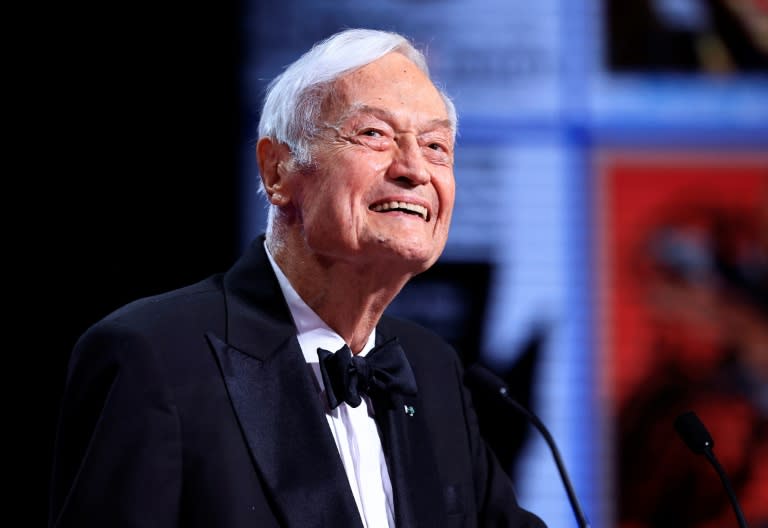Legendary B-movie producer Roger Corman dies

- Oops!Something went wrong.Please try again later.
- Oops!Something went wrong.Please try again later.
- Oops!Something went wrong.Please try again later.
- Oops!Something went wrong.Please try again later.
- Oops!Something went wrong.Please try again later.
- Oops!Something went wrong.Please try again later.
American B-movie director and producer Roger Corman, best known for hundreds of low-budget films and discovering Hollywood heavyweights from Jack Nicholson to Martin Scorsese, Francis Ford Coppola and Robert De Niro, has died aged 98.
Corman died at his home in Santa Monica, California on Thursday, according to a statement posted on his official Instagram account.
"His films were revolutionary and iconoclastic, and captured the spirit of an age," the family said in the post Saturday. "When asked how he would like to be remembered, he said, 'I was a filmmaker, just that.'"
Corman specialized in lightning-fast, low-budget productions which often became cult classics, including "The Little Shop of Horrors" -- which he shot in just two days.
He also shot a series of acclaimed Edgar Allan Poe adaptations starring Vincent Price which are considered masterpieces, and he had a strong influence on European horror cinema.
At times he shot two films at once to save money, he explained in his autobiography "How I Made a Hundred Movies in Hollywood."
"My cinema is uninhibited, full of excess and fun," Corman told an applauding crowd at Cannes in 2023, after he was introduced by director Quentin Tarantino, who had praised his "raw, freaky, twisted films."
"He was my first boss, taskmaster, teacher, mentor and role model," Coppola posted on social media beneath a picture of himself and Corman.
"There is nothing about the practical matter of making movies I didn't learn by being his assistant."
"Roger Corman was my very first boss, my lifetime mentor and my hero," "Terminator" producer Gale Anne Hurd posted on social media platform X, calling him "one of the greatest visionaries in the history of cinema."
Director Ron Howard said Corman gave him his first chance at the job when he was just 23 years old.
"He launched many careers & quietly led our industry in important ways," Howard wrote on X.
"Grateful to have known him."
"His legendary ability to stretch a dollar allowed him to swiftly conceive and create period films and sci-fi epics on budgets that wouldn't cover the food costs on a modern studio shoot," according to his biography on the Oscars website.
"Through ingenuity, boundless energy and a deep love of movies, Roger Corman has made more of them than just about anyone," it added.
- 'Gamble' -
Corman was born in Detroit in 1926 and got his Hollywood start as a messenger for Twentieth Century-Fox before becoming a script reader.
He later became a mainstay of American International Pictures, which The New York Times described as pioneering the "low-budget drive-in fare of the 1950s."
As a producer and director, he racked up more than 500 credits, according to movie database IMDB, among them "The Fast and the Furious," "Grand Theft Auto" and "The Cry Baby Killer," Nicholson's big-screen debut.
Some of Corman's themes included the overthrow of the social order after nuclear attack, such as in 1955's "Day the World Ended."
A man of the left, he also criticized McCarthyism with 1956's "It Conquered the World," and racial segregation with "The Intruder" in 1962.
He revitalized the vampire film: In 1956's "Not of This Earth," the main character is no longer an evil creature, but an ordinary man walking around with a suitcase full of syringes.
Cinema is "the only true modern art form," Corman said as he accepted an honorary Academy Award in 2009.
"All other arts had their origins in antiquity and are therefore, to a certain extent, static. Motion pictures encompass movement ... and for that reason they are modern," he continued.
He said it was "easy" for the film industry "to repeat their successes, to spend vast amounts of money on remakes, on special effects-driven tent-pole franchise films."
"But I believe the finest films being done today," he added, "are done by the original, innovative filmmakers who have the courage to take a chance and to gamble."
bur-sn/lb/st/bbk

